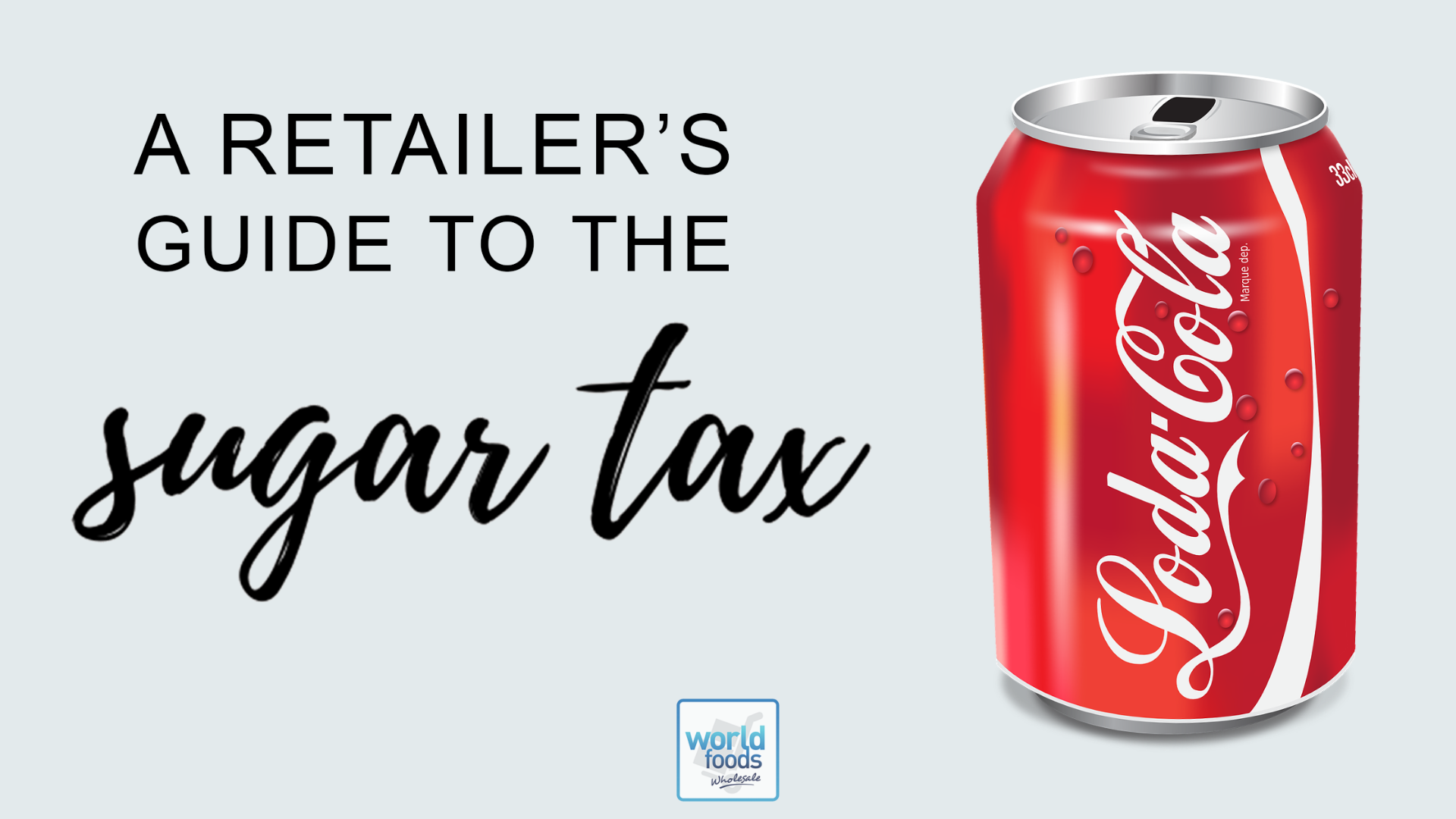A Retailer's Guide to the Sugar Tax
 |
It has been five years since we first heard about the ‘Sugar Tax’, and three years since it was implemented. But, what do you really know about the UK Government’s levy on soft drinks?
In this post we will explain everything you need to know about the Sugar Tax from a retailer’s perspective.
-
What is the Sugar Tax?
Back in 2016 it became apparent that the UK had a ‘sugar problem’. Fears of child obesity, diabetes, and heart disease were on the rise, and the food industry was under scrutiny. It turned out that soft drinks were the largest source of sugar in the diet of children aged 11 to 15, making up at least 29% of their daily sugar intake!
Following on from a media onslaught, the Government proposed a new legislation to tackle this growing problem. They decided to impose a levy on all soft drinks containing sugar, including the production and importation of all soft drinks.
Once decided upon, this levy, known as the Sugar Tax, came into fruition in April 2018.
-
How does the Sugar Tax work?
Although it sounds quite complicated, the Sugar Tax is quite simple; all applicable drinks will have an increase in cost relative to the amount of sugar they are carrying. This includes all imports, however milk and pure-fruit juice-based drinks are exempt.
The tax is levied in two bands: The first for total sugar content above 5g per 100ml (at 18p per litre). The second, higher band for total sugar content above 8g per 100ml (at 24p per litre).
Drinks with less than 5g of sugar per 100ml are exempt.
The reason behind this levy is simple; it encourages manufacturers to make drinks with less sugar, and it encourages consumers to buy drinks with less sugar as they are advertised clearly as being the cheaper option by retailers.
-
How does the Sugar Tax affect retailers?
Although controversial to begin with, over the past few years manufacturers and retailers alike have made the necessary changes to adhere to this new levy. Many brands such as Coca Cola and Irn Bru took the tax on the chin, making changes to recipes and even creating new alternatives such as the much-loved Coke Zero.
Retailers, especially independent businesses, have struggled a little more in light of the changes, however. Although it wasn’t made compulsory, retailers have been encouraged to raise the price of their sugary drinks in line with the wholesale price increase. But this hasn’t worked for everyone, and some businesses have cut their losses in an attempt to keep their customers happy.
However, those that did increase their prices have since found that it hasn’t been a problem. Similar to the plastic bag tax that preceded it, the Sugar Tax has found itself in line with consumer trends. Many customers are now leaning towards healthy eating, with organic and natural products becoming much more popular as the years have gone on. So, with this change in consumer behaviour comes a change in product popularity, and many businesses have acknowledged that they haven’t noticed a drop in sales since the Sugar Tax was implemented.
-
A few years on… what now?
We can see now that the Sugar Tax has made positive changes on the health of the British public. All money made from the levy has gone towards supporting sports and breakfast clubs in schools, and the increase in prices has changed the way many consumers shop.
But, to fully benefit from the tax retailers should continue to show their support for healthier options. Nowadays, healthy shouldn’t mean boring! So, although some customers will always have their favourites, there are plenty of healthy options that not only escape the Sugar Tax but will also fly off your shelves! Advertise these alternatives positively and you should continue to see a steady revenue.
- - -
As a retailer, although the Sugar Tax can seem daunting it is relatively simple. A few years on and the dust has settled. Now, all it takes is a bit of consumer research and a wide variety of options to suit every customer! We hope that this simple guide has helped you understand the Sugar Tax a little more.
Get in touch!
Phone: 01908 366633
Email: [email protected]
Instagram: www.instagram.com/worldfoodswholesale/
Facebook: www.facebook.com/worldfoodswholesale/

Comments
Leave A Reply
Your email address will not be published.